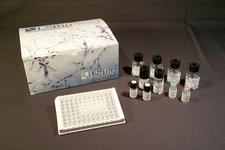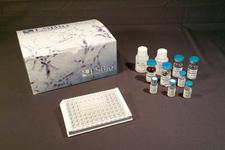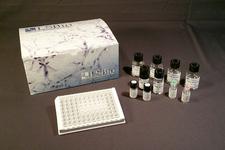order histories, retained contact details for faster checkout, review submissions, and special promotions.
Forgot password?
order histories, retained contact details for faster checkout, review submissions, and special promotions.
Locations
Orders Processing,
Shipping & Receiving,
Warehouse
2 Shaker Rd Suites
B001/B101
Shirley, MA 01464
Production Lab
Floor 6, Suite 620
20700 44th Avenue W
Lynnwood, WA 98036
Telephone Numbers
Tel: +1 (206) 374-1102
Fax: +1 (206) 577-4565
Contact Us
Additional Contact Details
order histories, retained contact details for faster checkout, review submissions, and special promotions.
Forgot password?
order histories, retained contact details for faster checkout, review submissions, and special promotions.
DIO2
deiodinase, iodothyronine, type II
Type II iodothyronine deiodinase activates thyroid hormone by converting the prohormone thyroxine (T4) by outer ring deiodination (ORD) to bioactive 3,3',5-triiodothyronine (T3). Thyroid hormone appears to have important regulatory effects in some mammalian tissues, such as the developing brain, the anterior pituitary gland, and brown adipose tissue. A relatively high proportion of the receptor-bound triiodothyronine is found within the tissue itself rather than in plasma. The expression in these tissues of type II iodothyronine deiodinase, suggests that deiodinase II is responsible for this 'local' production of T3 and is thus important in influencing thyroid hormone action in these tissues. In addition, DIO2 activity is markedly elevated in the hypothyroid state and appears to be responsible for catalyzing the production of a large proportion of the circulating T3 under such conditions. Dioiodinase 2 may contribute significantly to the relative increase in thyroidal T3 production in patients with Graves disease, toxic adenomas, and, perhaps, iodine deficiency. Alternative splice variants are formed due to the presence or absence of an unspliced intron in the 5' untranslated region.
| Gene Name: | deiodinase, iodothyronine, type II |
| Synonyms: | DIO2, 5DII, D2, DIOII, ITDI2, Type 2 DI, TXDI2, Type-II 5-deiodinase, SelY, Type-II 5deiodinase, Thyroxine deiodinase, type II |
| Target Sequences: | NM_013989 NP_054644.1 Q92813 |










If you do not find the reagent or information you require, please contact Customer.Support@LSBio.com to inquire about additional products in development.









